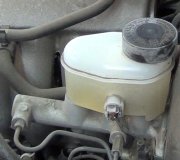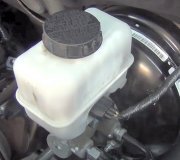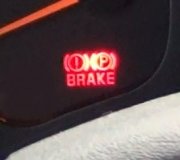There could have been some air trapped in the ABS unit. Those can be kind of tricky to bleed effectively sometimes. Help me understand; the same problem you had BEFORE the master cylinder was replaced still exists, right? But now, the brakes work like they're supposed to, right? If there's air in the system, it won't come and go. Air can be compressed, thus the pedal going to the floor. Fluid cannot be compressed. The HARD STOPS that the Toyota rep recommended was probably related to the ABS system. But, if air is getting into the system, nothing will work except getting the air out. They need to start at the farthest point from the master cylinder and work closer. I.E. Start bleeding at the passenger rear. Maybe they need to bleed a little more. Some people stop after 2 or 3 times if NO AIR comes out. What if the air just hasn't made it to the bleeder yet. It may be ALMOST there but then they move to the next wheel and miss the air. Then you're fighting a losing battle. They should bleed a lot. Once they've made sure there is NO AIR in the right rear, then move to the left rear, then to the right front, then the left front. Some ABS units have bleeders on them, as well. They should follow Toyota's procedure for bleeding it. Then bleed at the master cylinder. I've come up with a pretty successful way to bleed the master cylinder. Have a helper apply slight pressure to the pedal. (About 1/3 the way down) then open a line at the MC and have them very slowly push the pedal down. Then close the line. Repeat this until there is NO bubbles in the fluid coming out.
These are just some ideas. If I'm off base with your complaint, repost with more details and complaints and I'll give it another whirl. Good luck
Tuesday, January 27th, 2009 AT 8:47 PM



